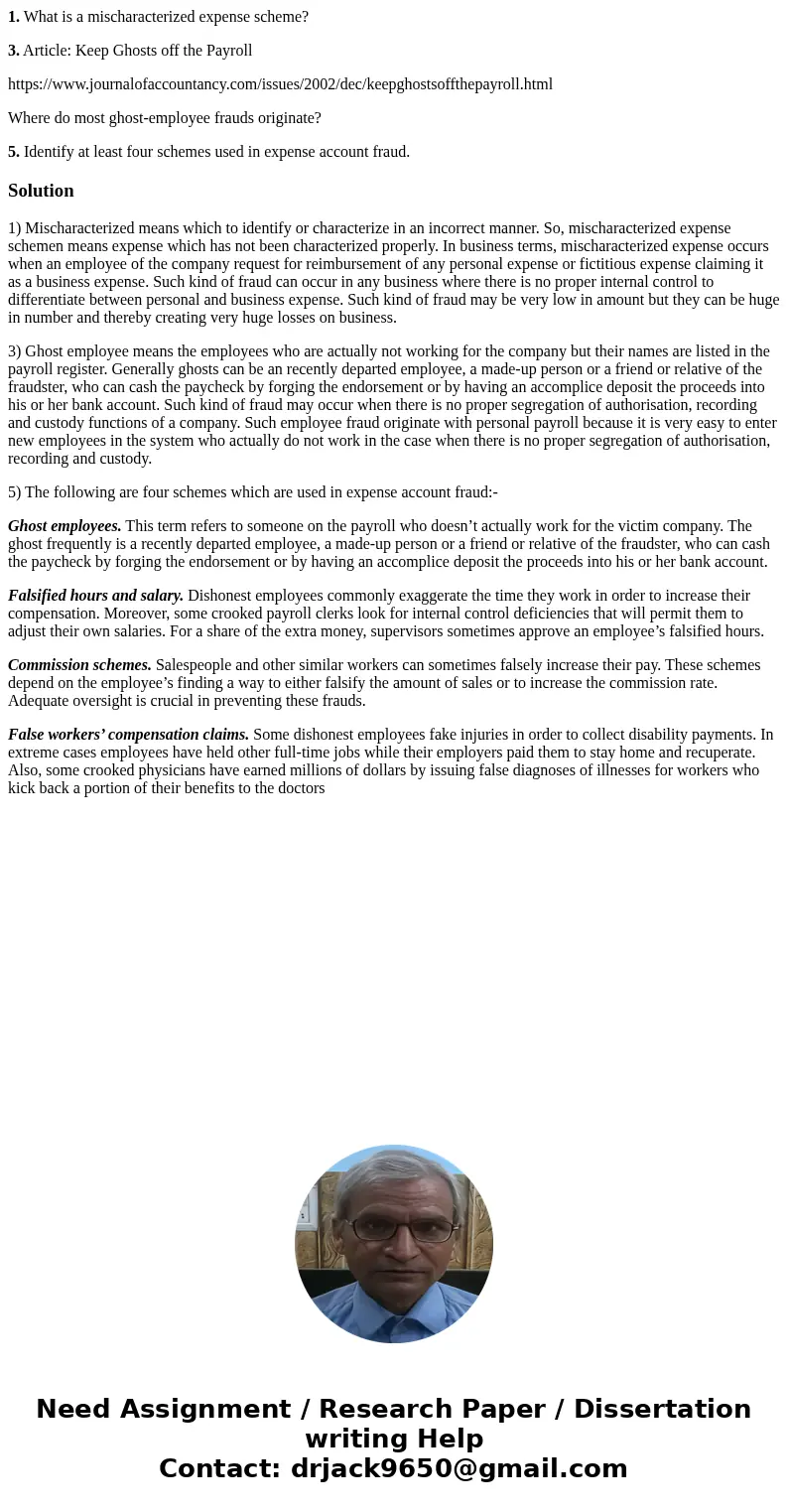1 What is a mischaracterized expense scheme 3 Article Keep G
1. What is a mischaracterized expense scheme?
3. Article: Keep Ghosts off the Payroll
https://www.journalofaccountancy.com/issues/2002/dec/keepghostsoffthepayroll.html
Where do most ghost-employee frauds originate?
5. Identify at least four schemes used in expense account fraud.
Solution
1) Mischaracterized means which to identify or characterize in an incorrect manner. So, mischaracterized expense schemen means expense which has not been characterized properly. In business terms, mischaracterized expense occurs when an employee of the company request for reimbursement of any personal expense or fictitious expense claiming it as a business expense. Such kind of fraud can occur in any business where there is no proper internal control to differentiate between personal and business expense. Such kind of fraud may be very low in amount but they can be huge in number and thereby creating very huge losses on business.
3) Ghost employee means the employees who are actually not working for the company but their names are listed in the payroll register. Generally ghosts can be an recently departed employee, a made-up person or a friend or relative of the fraudster, who can cash the paycheck by forging the endorsement or by having an accomplice deposit the proceeds into his or her bank account. Such kind of fraud may occur when there is no proper segregation of authorisation, recording and custody functions of a company. Such employee fraud originate with personal payroll because it is very easy to enter new employees in the system who actually do not work in the case when there is no proper segregation of authorisation, recording and custody.
5) The following are four schemes which are used in expense account fraud:-
Ghost employees. This term refers to someone on the payroll who doesn’t actually work for the victim company. The ghost frequently is a recently departed employee, a made-up person or a friend or relative of the fraudster, who can cash the paycheck by forging the endorsement or by having an accomplice deposit the proceeds into his or her bank account.
Falsified hours and salary. Dishonest employees commonly exaggerate the time they work in order to increase their compensation. Moreover, some crooked payroll clerks look for internal control deficiencies that will permit them to adjust their own salaries. For a share of the extra money, supervisors sometimes approve an employee’s falsified hours.
Commission schemes. Salespeople and other similar workers can sometimes falsely increase their pay. These schemes depend on the employee’s finding a way to either falsify the amount of sales or to increase the commission rate. Adequate oversight is crucial in preventing these frauds.
False workers’ compensation claims. Some dishonest employees fake injuries in order to collect disability payments. In extreme cases employees have held other full-time jobs while their employers paid them to stay home and recuperate. Also, some crooked physicians have earned millions of dollars by issuing false diagnoses of illnesses for workers who kick back a portion of their benefits to the doctors

 Homework Sourse
Homework Sourse